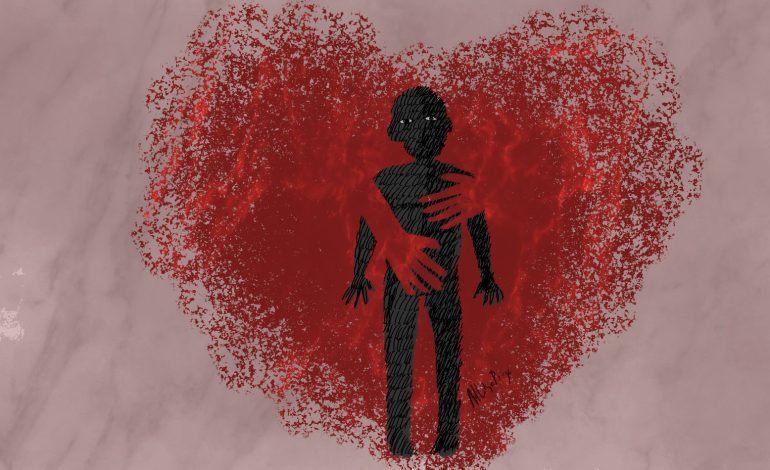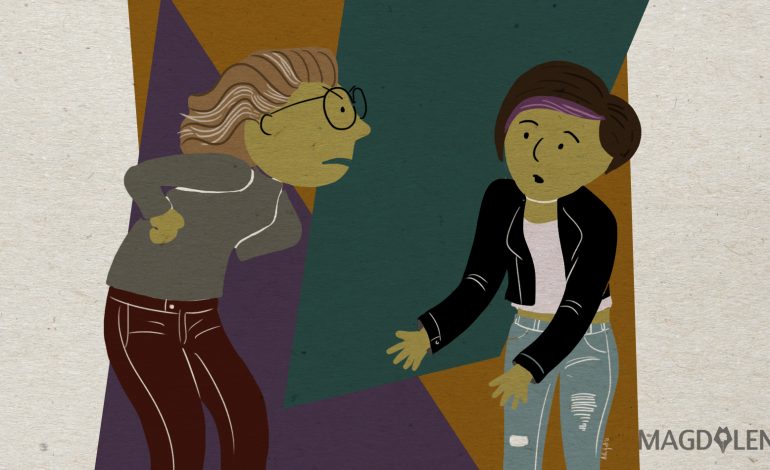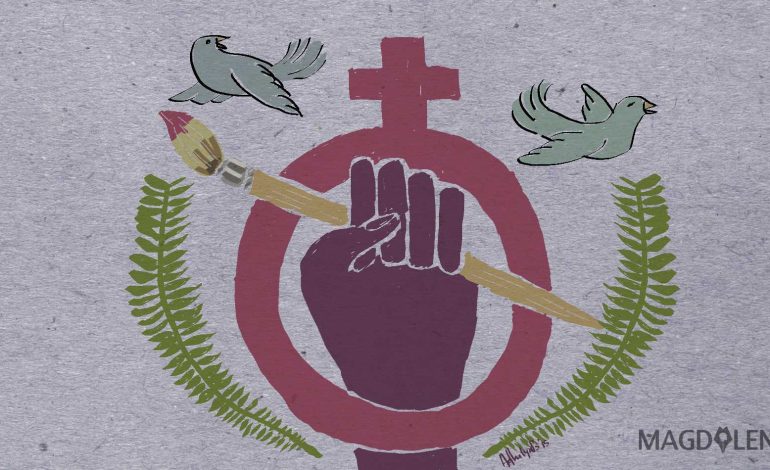House of Grace Gives a New Lease on Life to Girls and Young Women

“Ishani” was 13 years old when she first had sex for money. It was with a 35-year-old man who was also her father’s friend. Asides from getting paid, which range from Rp 30,000 (less than US$3) to Rp 70,000, she was promised a good singing vocal for this man’s ordo, a shortened for orkes dorong dangdut or mobile dangdut band.
“One time, I refused to have sex with him, he threatened to leak the video of us having sex. I didn’t know that he was recording it,” said Ishani, who is now 15 years old.
Ishani is one of the five girls currently living in a safe house run by House of Grace (Rumah Kasih Karunia), a non-religious and non-profit organization that aims to empower young women survivors of human trafficking to reclaim their best potential.
House of Grace cooperates with another nonprofit Bandungwangi, which has been reaching out to vulnerable girls and traffic and sexual violence survivors since 1995. Bandungwangi offers a safe space for women and child victims to share their stories. It also holds seminars and provides sex education to girls. But they had no facilities to accommodate these girls until their collaboration with House of Grace.
Indonesia is a hub for trafficking of women and children for the sex industry, its role extending to both destination and transit country. Each year, between 40,000 to 70,000 children are trafficked in Indonesia with the majority ending up being sexual exploited, including forced prostitution. The average age of girls when they enter the sex industry is 12 to 14 years old and they are sold for as little as Rp 50,000. Poverty, social acceptance of child labor, a lack of birth registration, and traditions such as early marriage and low education for girls are among the root causes of human trafficking.
Still, there is not enough protection or efforts being done by the state to end this problem and to provide service for the survivors. There are currently only 18 rehabilitation centers and 247 integrated service centers funded and operated by the government nation-wide.
Flora Harto, a co-Founder of House of Grace, says that the majority of girls who fell into sex trafficking, stayed in the business. They stayed in the business due to a lack of education and skills, and not knowing where to go. House of Grace wanted to change that by helping these girls and provides them with education and life skills.
“The level of poverty and lack of education that has not improved until now in Indonesia has an implication on young girls who fell into sex trafficking. So a lot of young girls who are victims of sex trafficking are going to need this program,” Flora says.
House of Grace’s opened its safe house and rehabilitation program program last April. The girls at the safe house range from 15 to 24 years old and hailed from the same densely populated slums in North Jakarta. They had to quit school because of poverty, having only attended primary school. By 14 or 15, they had worked as “singers” at cafes known for prostitution in the area.
Early this year, House of Grace opened to girls and young women rescued from sex work. Working with the government, it provides education for them, helping them to obtain middle school and high school diplomas, as well as teaching life skills, and providing health and psychological services.
Located in Bumi Serpong Damai satellite city in Tangerang, the safe house accommodates up to eight residents. Another building nearby is a two-story shop house used as a thrift store and classrooms. The girls and young women are to take part in a year-long program at House of Grace.
The House of Grace’s Program and Activities
Each of the two safe houses is supervised by a “house mom”, who is responsible and manages the girls’ activities from the minute they wake up in the morning.
“Every week they are given a different schedule and chores: like washing the dishes, mopping the floor and cleaning up their rooms. I am also assisted by a captain, to help me cook and shop. The captain serves as house mom’s right-hand,” says House of Grace’s House Mom, Evelyn.
At the shop houses, the girls take academic classes and trainings for jobs from Monday to Friday. The classes range from English, math, geography, to public speaking, accounting, hospitality, baking and table manners. At the thrift shift downstairs, the organization sells donated goods for fund raising.
Says the thrift shop manager, Anatasha Soebroto: “We set up the thrift shop not just to raise fund, but, more importantly, to teach them marketing skill, from the basics like greeting the customers to how to be a good salesperson. They can use the skill for the future.”
One of the girls, “Radika” says: “I cannot imagine what my life would be like without House of Grace and its program.”
“Before I lived here, I worked from 9PM to 3AM to sing at a Café and accompany older men to help my family finance. But since I lived here, I learned so many things that will be really useful for me when I finished this program.”
The girls have their own fondness; one of them like to bake, and the others like to dance, sing, and even marketing. They say, they wanted to focus on the field that they like, because by the time this program ends, they want to practice it in real life.
“At first, I would cry at night because I miss home. But as time goes by, I started to get comfortable and getting along with the other girls and people who involved in House of Grace,” says “Nita”.
Their family and parents who strongly disagree at first, are finally giving a positive feedback once they know that the girls are doing very well at House of Grace. The girls got a chance to meet their parents too on last Ramadhan.
But it’s not always easy to convince the parents that their girls would be better at the safe house than continuing to do sex works. For one, there is a misperception that House of Grace is a religious organization.
“They falsely think that House of Grace would ‘Christianize’ the girls,” says House of Grace Co-Founder, Flora Harto.
But it didn’t stop House of Grace from helping the girls.
“It was not easy to convince the families of the girls. But once we explain and give them the understanding about this program that would help their daughters, they would at last understand, and permit their daughters to stay in the safe house,” she explains.
To the girls at House of Grace, the safe house provides them with a life they could never imagine in their previous life.
“I feel like this is a once-in-a-lifetime opportunity. I’ve learned a lot here and the people are really taking good care of us,” said “Maura”.
If you want to contribute or volunteer for House of Grace, you can visit House of Grace’s Facebook, Instagram: @houseofgracefoundation, or e-mail [email protected].
Read Camely’s article on judicial review against marriage law and follow @bunnicula on Twitter.






















